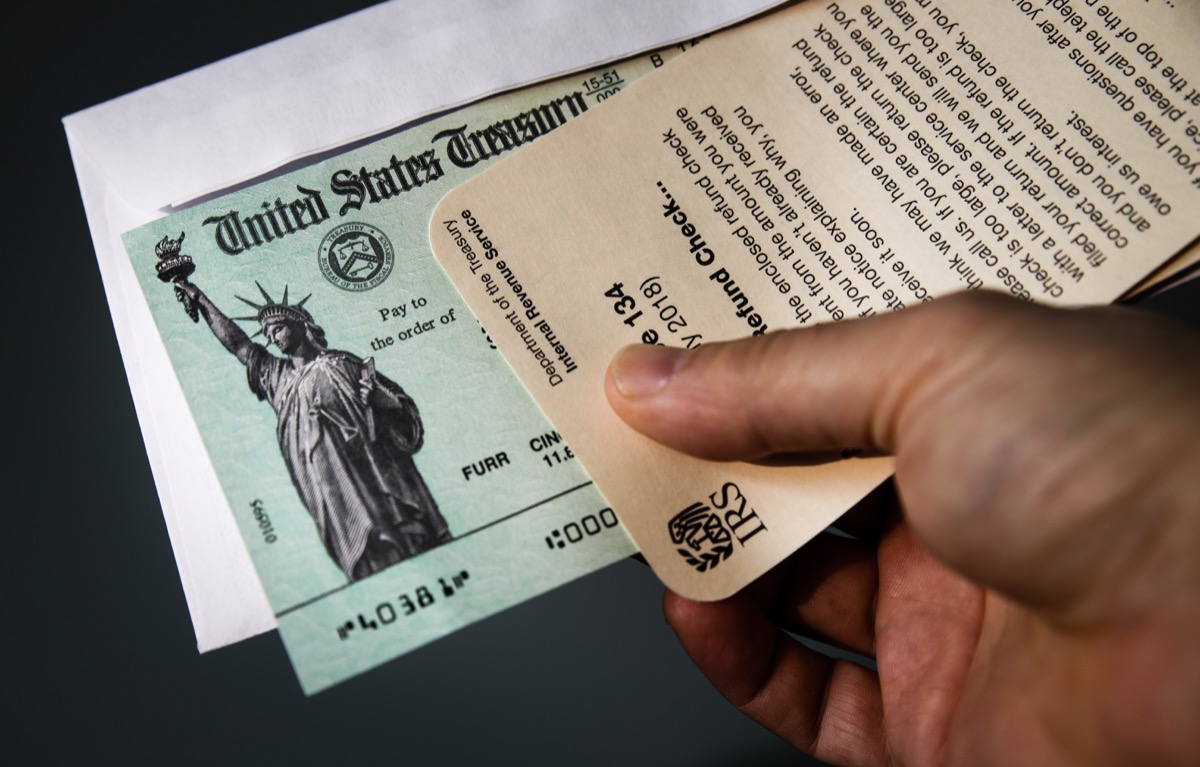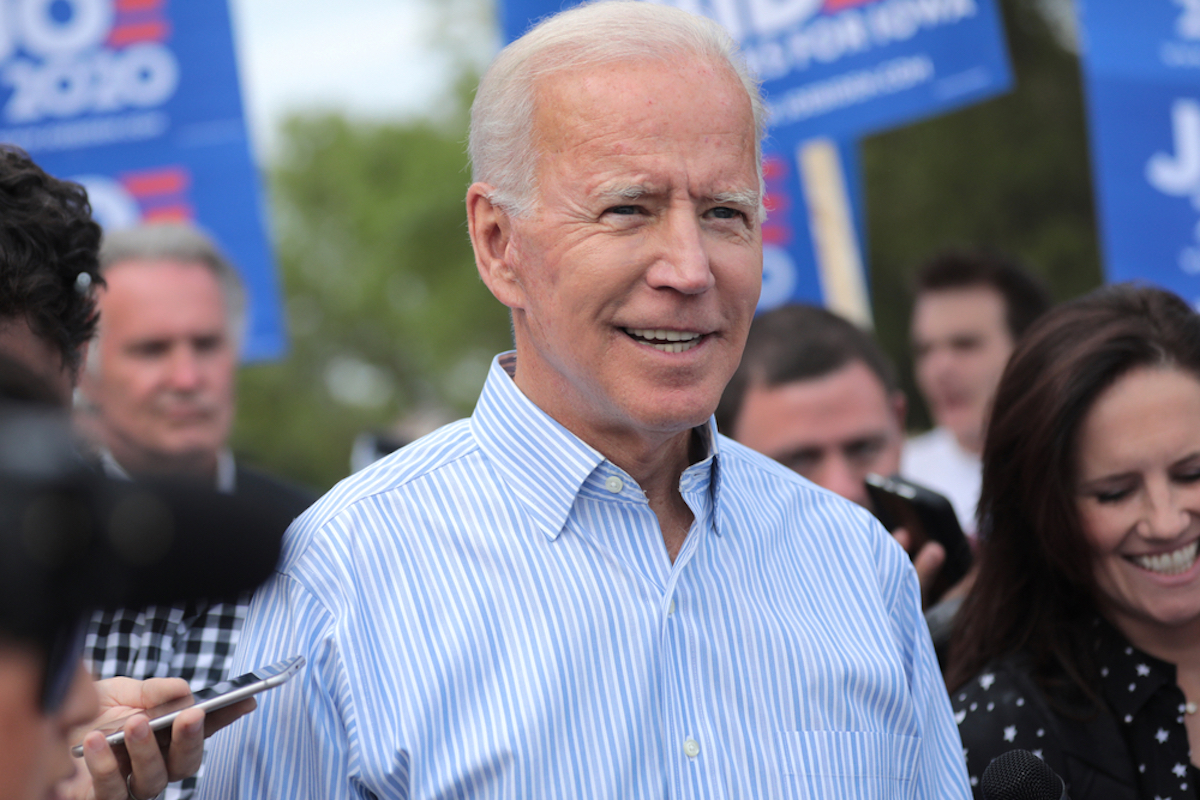This Is Why You May No Longer Qualify for the Next Stimulus Check
You might not get the next check, even if you qualified for previous ones.

Stimulus checks have been a recent development in the U.S. as a way to offset some of the financial hardships brought on by the COVID pandemic. Over the past year, Americans received two stimulus checks under former President Donald Trump's administration—one for $1,200 in April and the other for $600 in late December. President Joe Biden has promised the American people a third, but there may be some limitations that come with it. In fact, new stipulations might mean you no longer qualify for the next stimulus check, even if you received the two previous ones. Read on to find out what changes are being proposed, and for more policies from the current administration, The White House Reinstated This Major COVID Restriction.
Some Democrats are proposing that only those who make less than $50,000 get full stimulus checks.

Negotiations surrounding the third stimulus check are still in process, but qualifications may be shifting. According to The Washington Post, Democrats are considering proposing that $1,400 payments be sent to individuals earning up to $50,000 per year and that $2,800 be sent to married couples earning up to $100,000 per year. However, the party's plan has not been publicly released yet and could still change. In the meantime, nine Democratic senators have co-sponsored an amendment that would "ensure upper-income taxpayers are not eligible" for the next stimulus check. And for more changes on the horizon, Dr. Fauci Says the CDC May Make This Major Mask Change Soon.
Republicans have proposed smaller and more restrictive stimulus checks.

The Republican Party has not only proposed decreasing the maximum salary requirements, but also decreasing the amount of the stimulus check. According to Forbes, 10 Republican senators sent a proposal to President Biden on Jan. 31 that calls for sending $1,000 checks instead of $1,400. Under this proposal, individuals earning up to $40,000 per year and couples earning up to $80,000 per year would receive a full $1,000 stimulus check. Those earning more than this would see their payments lessened, but then cap out completely at an individual salary of $50,000 or a coupled salary of $100,000—meaning those who earn this much or more will receive no money at all. And for more insight from government officials, These Places Will Close Next, White House Adviser Warns.
Previous stimulus checks did not have the same salary qualifications.

Any American making $75,000 or less qualified for full payments when it came to both the $1,200 and $600 stimulus checks. Now, for the third stimulus checks, both the Democrats' potential proposal and the Republicans' proposal reduce the maximum salary qualifications by at least $25,000. As Kyle Pomerleau, a fellow at the American Enterprise Institute who specializes in tax policy, explained to The Washington Post, this would mean that only 71 percent of Americans would receive full benefits from the new stimulus plan. Previously, 85 percent of Americans were eligible to receive full payments. And for more up-to-date information, sign up for our daily newsletter.
There are vocal critics of the current plans for the next stimulus checks.

President Biden announced the American Rescue Plan on Jan. 20, which promises $1,400 stimulus checks to Americans across the country in order to "deliver immediate relief to working families bearing the brunt of this crisis." Biden said that the $1,400 "will finish the job of getting a total of $2,000 in cash," when seen as an addition to the second stimulus check of $600. However, some critics, like Democratic Rep. Alexandria Ocasio-Cortez, say this doesn't count as the $2,000 per person stimulus checks he originally promised the American people. "$2,000 means $2,000. $2,000 does not mean $1,400," Ocasio-Cortez told the The Washington Post. And for more news from Biden's administration, The White House Just Mandated Masks in These 5 Places.





















